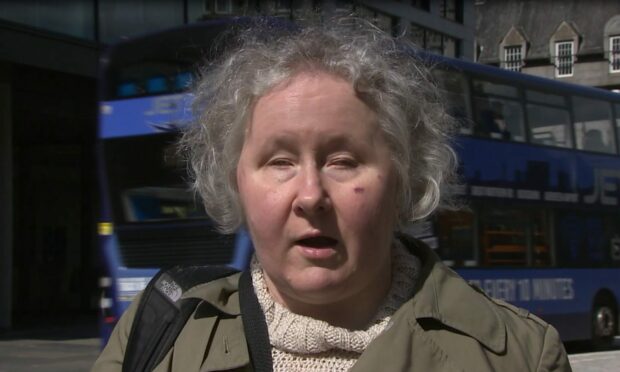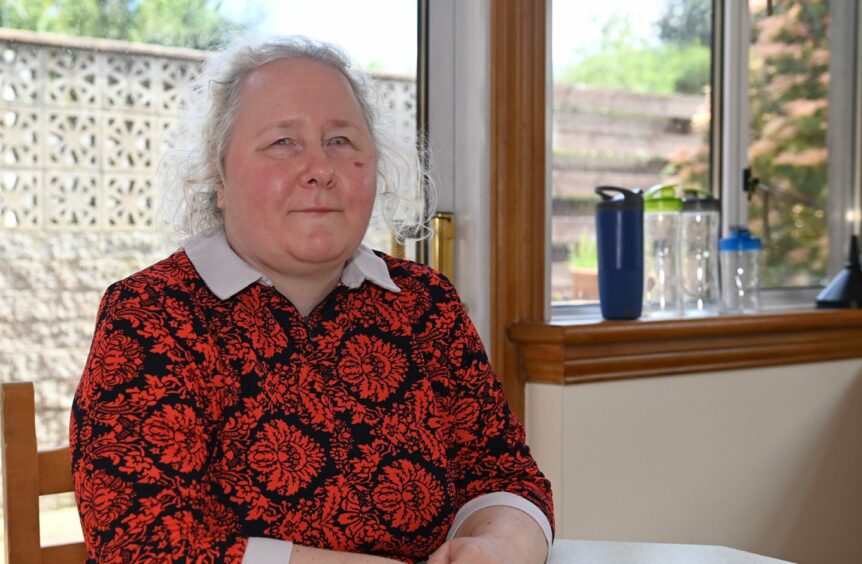An Aberdeen woman who has been blind since birth has backed a campaign to challenge outdated perceptions about sight loss.
Amanda Foster says that even in 2022 there are “still persistent misperceptions among sighted people” regarding what it is to be blind.
The campaign, launched by the Royal National Institute of Blind People Scotland, aims to challenge some of these perceptions and give a voice to the frustrations of visually impaired people.
It is called See the Person, Not the Sight Loss and will start on World Sight Day today, October 13.
Film shows the impact of sight loss
A short film starring a teenage girl coming to terms with losing her sight shows how mental, as well as physical health, can be impacted.
The cast of Gogglebox on Channel 4 will watch the film, opening up the conversation about sight loss to the nation.
Backing the campaign, Amanda Foster said: “A common misconception is that all blind people should have a guide dog.
“They can get upset when someone doesn’t. I have been asked this loads of times and I know of other people who have been asked this, too.
“And blind and partially sighted people still struggle to gain employment and we still have to fight to make sure information, often important information, is given to us in an accessible format.”
In June, she shared her story about her troubles getting work.
David Aldwinckle, director of insight at RNIB, said: “When people are diagnosed with sight loss, we know that they often experience a range of emotions including shock, anger and anxiety.
“At RNIB, blind and partially sighted people often tell us that they wish other people had a better understanding of what it means to be living with a vision impairment.
“We know that by making sometimes small changes to their behaviour, people can help to create a more equitable world for anyone affected by sight loss.”
What do blind people wish sighted people would stop doing?
As part of the campaign, the RNIB asked blind people what they wished sighted people would stop doing.
Their answers include:
- Asking ‘How many fingers am I are holding up?’
- Assuming that because I can’t see properly, I can’t hear either.
- Making hurtful comments such as ‘I couldn’t cope if I was in your shoes’.
- Leaving a room or meeting without saying goodbye.
- Directing questions to my guide dog, family or friend instead of me.
- Asking ‘Would you rather be deaf or blind?’
The RNIB also asked blind people what they wished people knew about sight loss.
Their answers include:
- That sight loss is a spectrum, and everyone’s experience is individual.
- It’s tiring! The level of fatigue you feel from the extra concentration you are using all the time.
- It is deeply offensive to say, ‘I don’t look blind’.
- The fact that I’m blind, doesn’t mean I can’t do it, it just means it takes me a little bit longer or I do it a bit differently.
- How much flippant and disrespectful comments can hurt.
For more information about the campaign, visit the RNIB website.


Conversation